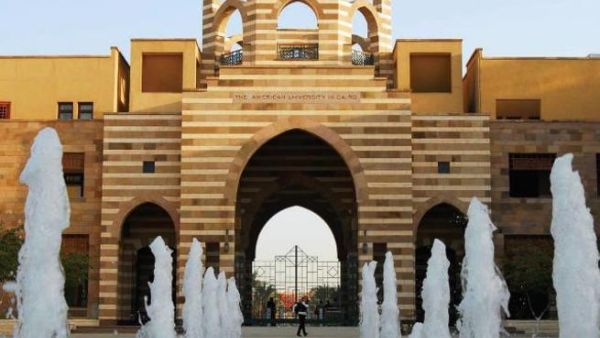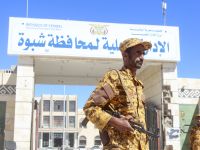New executive MBA launched at AUC

This spring, The American University in Cairo (AUC) will launch the Executive Master of Business Administration (EMBA) program. The program features international faculty members from highly renowned educational institutions offering intensive and personalized training for becoming a leading executive in a globalized economy. Moreover, the first cohort of students will meet on several campuses across the world – at AUC, the United States (Kellogg School of Business at Northwestern University) and China (Hong Kong University of Science and Technology). “This program fills a niche that has been neglected in the region,” said Khaled Dahawy, director of the MBA and EMBA programs and chair of the Department of Accounting. “Egypt needs more international educational opportunities that cater to company executives and directors. Our MBA program requires at least three years of work experience, but the EMBA is intended for those with at least eight years. We’re targeting individuals with proven experience who are ready to take the next step in their careers. The program is designed to offer the participants a transformational experience.”
The program consists of 23 modules, of which 18 held will be held at AUC New Cairo and taught by leading international faculty members from top universities like AUC, INSEAD, Rotterdam School of Management, Oxford University and the École Supérieure des Sciences Économiques et Commerciales (ESSEC Business School). Four modules will be live-in weeks of workshops and classes on the campuses of Northwestern University and the Hong Kong University of Science and Technology. The last module is a capstone module that aggregates all what participants have learned through a simulation and a set of cases.
Dahawy explained that the global nature of the EMBA program makes it an unprecedented opportunity. “This collaborative effort shows that AUC remains at the forefront of academic innovation in the region,” he said. “It benefits the University, giving us visibility in the international academic community, while also bringing skills and knowledge to the directors and management of Egypt’s businesses.”
Applicants to the program already boast distinguished track records in business and are looking to expand on skills they have already developed in managerial positions.
“I started to realize how important it is to enhance my managerial skills, as well as my vision for all aspects of business, not only the finance function,” said Basem Fouda, a senior finance manager for Al Futtaim Group Real Estate. After graduating from the faculty of commerce at Helwan University in 1998, he obtained his Certified Public Accountant (CPA) certificate and worked as an internal and external auditor for companies in Egypt and the United Arab Emirates. He joined Al Futtaim Group in 2010, and as his work shifted from auditing to finance and his responsibilities grew, he found himself interested in returning to school. “I originally decided to go for AUC’s MBA program, which is, by far, the best MBA program in Egypt,” Fouda said. “When I heard about the EMBA, I realized there is an executive program that better suits my experience, working conditions and expected benefits. I was impressed by the EMBA curriculum, as well as the list of professors.”
Abeer Almudaris, chief executive officer and managing director of MediFine Corp, a marketing and development company for health and beauty products that she founded in 2005, explained what she expected such benefits to be. “I decided to apply to AUC’s EMBA program because I have faith that it can effectively bring added value to my company by providing me with tools and networking skills, which I can use for my company’s growth, success and expansion,” she said. “It will teach me to look at problems and opportunities with a more holistic approach. I will learn analytical frameworks, such as risk assessment, cost-benefit analysis and strategic plans, which I will be able to realistically implement and apply to any problem or opportunity that I may encounter, whether in my business or beyond. This is of vital importance for my company.”
A 1988 AUC graduate of sociology, Almudaris also sees potential for personal as well as professional growth. “On a personal level, I think it will open many doors for me in my journey of self-discovery and development,” she explained. “Networking with others from different cultures will broaden my experience not only on a professional level, but on a personal one as well.”
Heba Abou Rabia, another AUC graduate, anticipates a transformative experience as well. “I am currently at a critical point and aspiring to a transition in my career from senior management to executive management, and I believe that I can achieve such a step through enrolling in the EMBA program,” said Abou Rabia. “The program will allow me to develop and add more skills, which will support my move up the executive ladder within my organization, as well as provide me with regional, if not international, opportunities.”
Abou Rabia graduated from AUC in 1993 with a bachelor’s in English and comparative literature and a minor in international relations. She has worked in the multinational oilfield and industrial services industry and as a manager at CORPLEASE, the leasing arm of the Commercial International Bank (CIB). She has served as country head of human resources for Al Futtaim Group in Egypt since October 2008. Like Almudaris, Abou Rabia looks forward to the new people she will meet and places she will see. “What really intrigues me in this program,” she said, “is the amount of exposure I will receive in terms of the diversity of the program’s participants as well as the live-in weeks in both the United States and China. AUC has been the major drive in my success to date, and I am looking forward to securing another chance for me to succeed even further.”
Background Information
American University of Cairo
Founded in 1919, AUC is a leading English-language, American-accredited institution of higher education and center of intellectual, social and cultural life of the Arab world. Its community of students, parents, faculty and staff, trustees, alumni and other generous sponsors represent more than 60 countries. The University stands as a crossroads for the world’s cultures and a vibrant forum for reasoned argument, spirited debate and understanding across the diversity of languages, facilities and human experiences.






